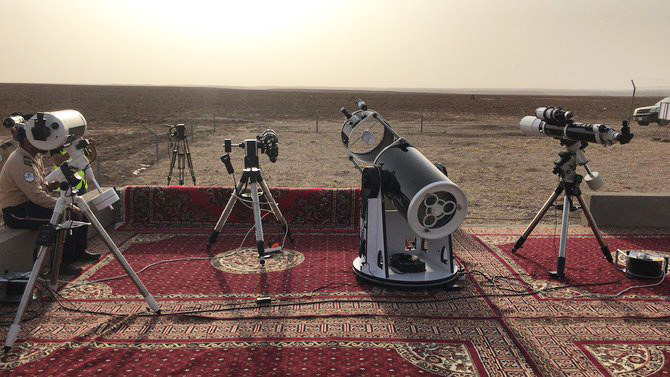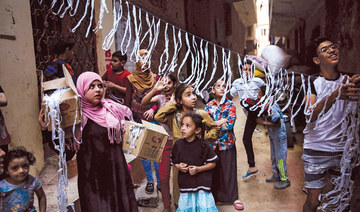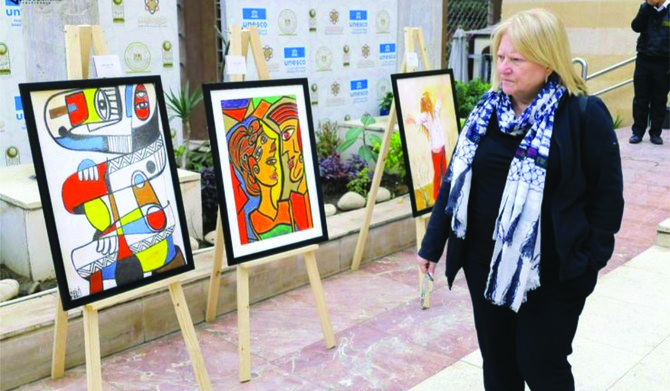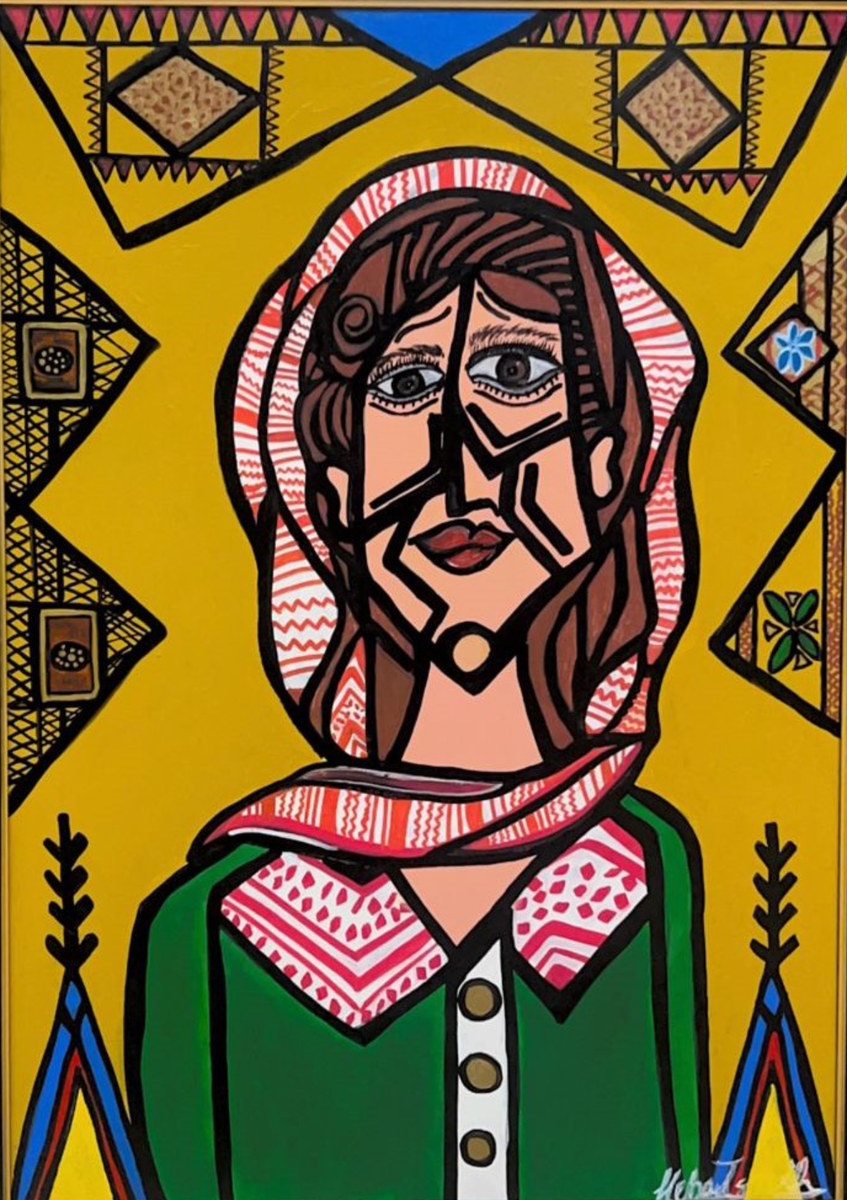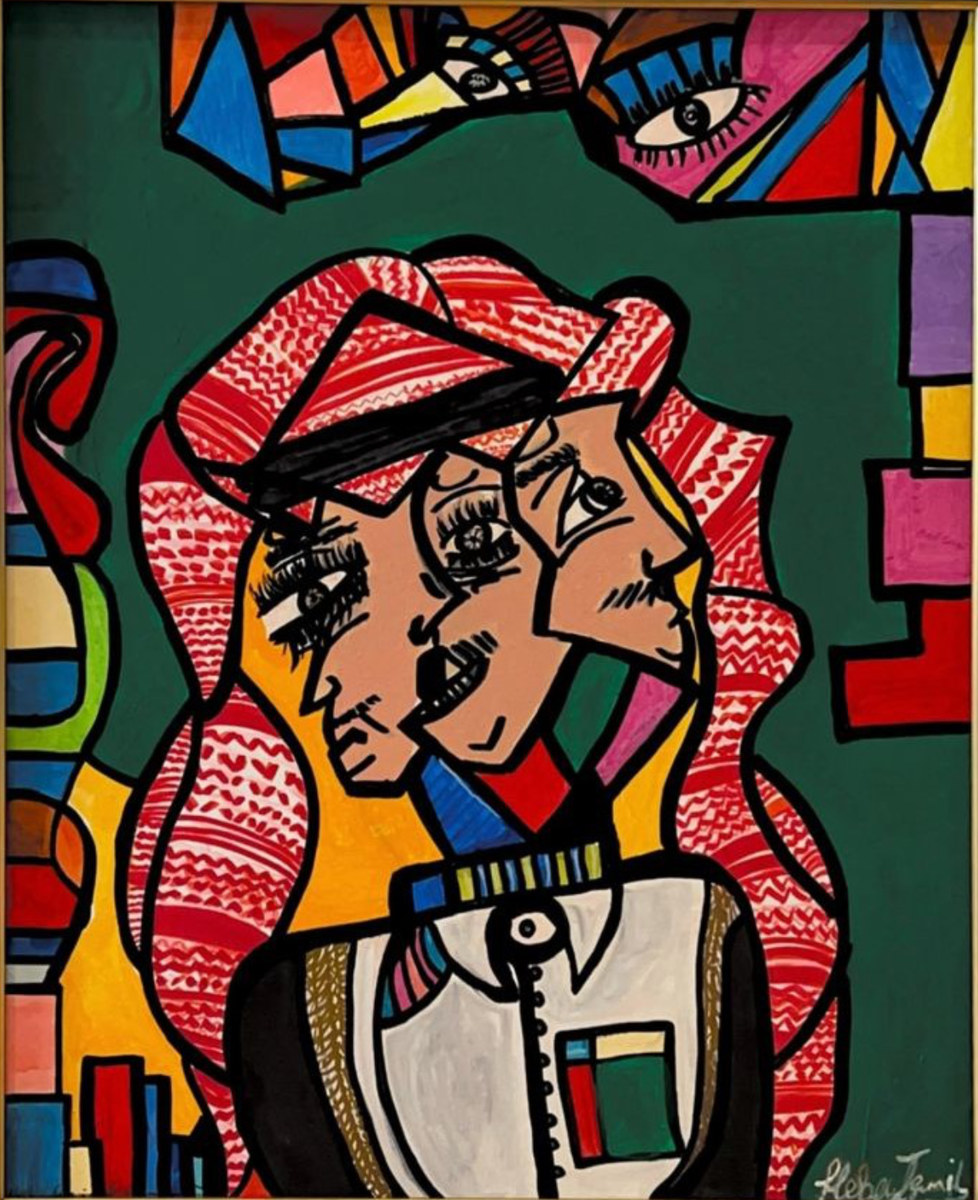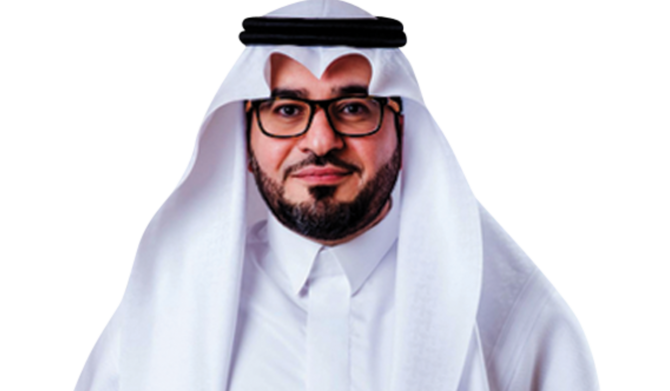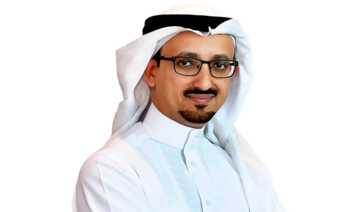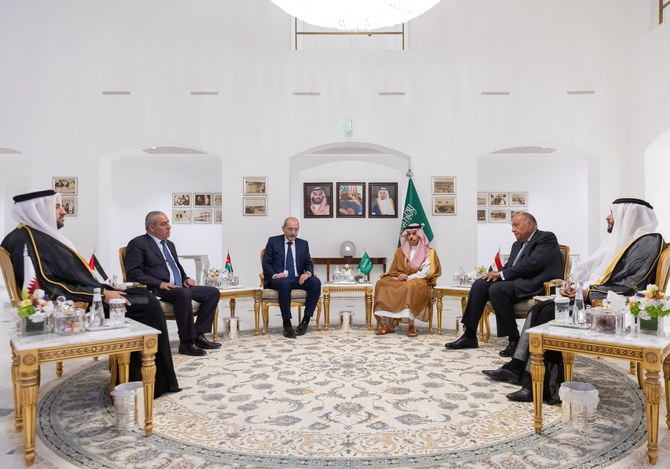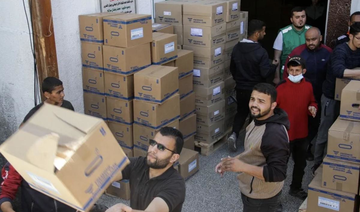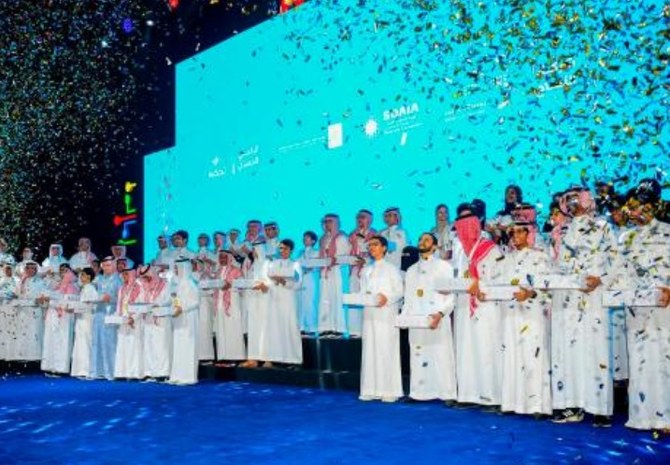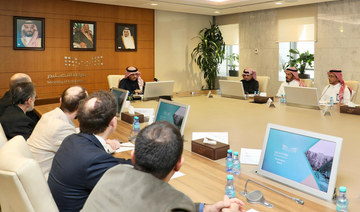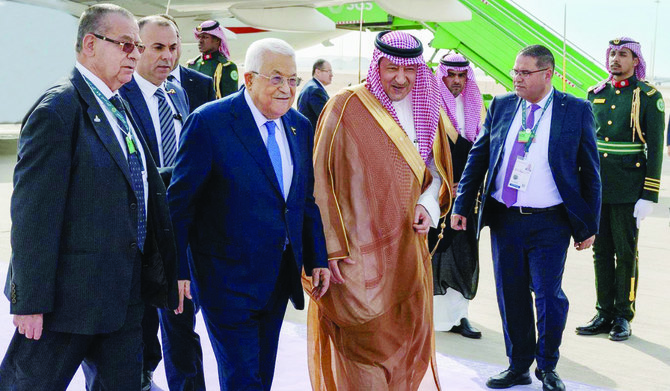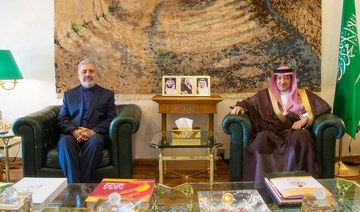RIYADH: Last week the Saudi Supreme Court called on all Muslims to look for the crescent moon signaling the start of Ramadan. On Saturday observers said that there was no sight of the crescent, meaning many Muslims around the world will begin fasting on Monday.
“The viewing of the crescent is a sensitive matter, because it is tied to both religion and astronomy,” Dr. Ayman Kordi, from the physics and astronomy department at King Saud University (KSU), told Arab News.
“The crescent observer cannot be refuted. He is to be trusted, because it is a gift from Allah. So, from a scientific point of view, when mistakes are made we call them illusions.”
Kordi’s love of astronomy started by accident in 1984. He was at university, studying physics, when a miscalculation of the Ramadan crescent moon meant he and his Muslim colleagues fasted for 28 days.
“That year we were surprised that Ramadan was only 28 days. A huge error was made. We fasted, and Eid Al-Fitr came, but it stuck with me. It was still on my mind, that error.”
The start of Ramadan is determined by the lunar calendar which, unlike the Gregorian calendar, follows a 29- or 30-day cycle determined by the cycle of the moon.
Muslims anticipate the end of Shaaban, the month preceding Ramadan, by watching for the absence or presence of the crescent moon, which indicates the continuation of Shaaban or the beginning of Ramadan.
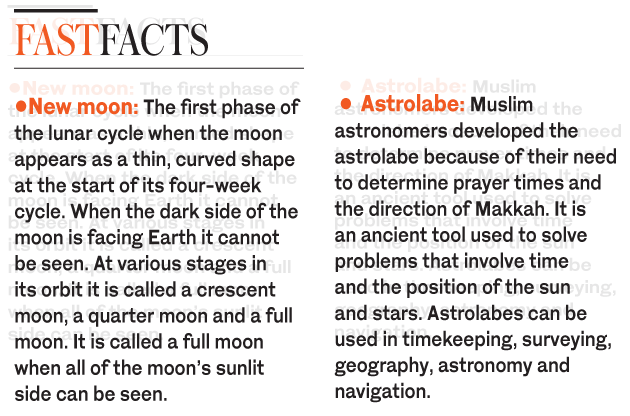
Sighting of the Ramadan crescent can be achieved through three methods: Telescopes and binoculars, astronomy, or the naked eye.
The 1984 miscalculation led to Kordi developing a passion for astronomy and, three years later, he joined King Saud University (KSU) as a lecturer.
He spent time under the guidance of Harvard astronomy graduate and KSU lecturer Dr. Salah-AlDeen Ibrahim. “I studied astronomy with him and taught students at the same time and, from then on, learned the conditions of sighting the crescent and other astronomy matters.”
It was during this period that Kordi and Ibrahim met the crescent observer in Sudair who had miscalculated Ramadan in 1984, to get a clearer picture of what happened.
“What did you see?” Kordi asked the observer.
“I saw two points (on the moon), one on the bottom and the other on the top,” the observer replied, and he believed that they were the two points of the crescent.
Kordi explained that this was a rare phenomenon to see with the naked eye and could be mistaken for the crescent. Yet there are certain conditions that need to be in place for there to be a crescent moon.
In addition, it cannot be seen during the beginning of the Hijri month, only in the middle of it.
They used a program from the International Astronomical Union to accurately sight the crescent and the months in the Hijri calendar. “When we used the program and calculated back to that time, we later discovered that the two points he saw were the planets Mercury and Venus. From that time, we knew there were some mistakes, but the problem was the Umm Al-Qurra calendar.”
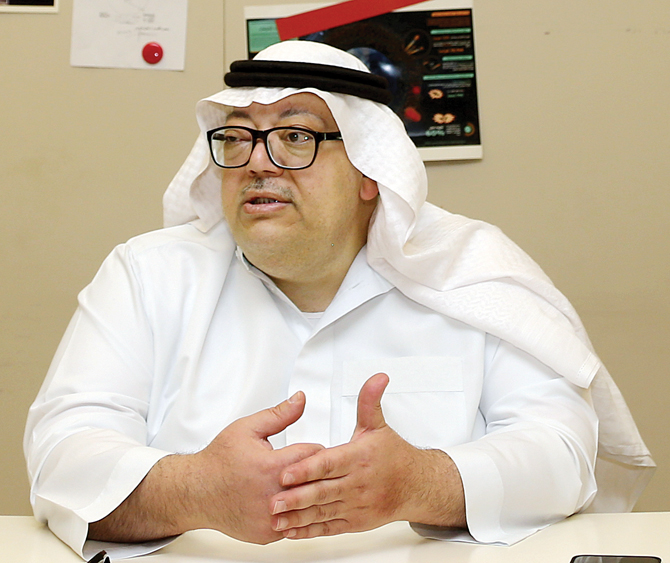
Dr. Ayman Kordi
Kordi had written a paper on how Umm Al-Qurra made mistakes in sighting the Hijri months through the crescent. But now, after meticulous calculations and sightings, he began work on another paper which charted its accuracy.
He explained that the calendar used to be based on the new moon, but not anymore. “Now the Umm Al-Qurra calendar has made no mistakes for 18 years and we are aligned with its Hijri months. It might seem like the sighting of the crescent is a simple matter, but lots of science goes behind it even when witnessing it with the naked eye. Dust and haze can affect the actual sighting, it is what we call an illusion.”
The psychological aspect comes from these illusions of a crescent moon: Muslims know beforehand the new month is coming and believe they have seen the crescent.
There have been plenty of instances in the past where different Muslim countries have seen the crescent and — based on their sighting — declared it to be Ramadan or Eid.
“The world is round and therefore it is natural that there are differences in moon sightings,” said Kordi.
The astronomy lecturer said that most Muslim countries have settled on Saudi Arabia’s sighting for a unified Ramadan fasting and Eid Al-Fitr. “Since the countries have agreed on a Hajj date. I believe the countries have agreed on the Umm Al-Qura calendar, because it’s from Makkah and it’s extremely accurate. Saudi Arabia is a big country with a very small number of astronomers, you can count them on one hand.”
It is perhaps a surprise that astronomy does not enjoy more prominence in the Kingdom as a career choice or even as an academic option, given the country’s pivotal global role in moon-sighting and the importance of astronomy in Islamic culture. Muslim scientists invented the astrolabe, which is the basis of astronomy teaching worldwide.
The small number of Saudi astronomers can be attributed to a lack of jobs, insufficient encouragement and no clear career path. The Bachelor’s in astronomy at KSU stopped 20 years ago and is instead offered in combination with physics. People are more likely to adopt astronomy as a hobby than as a profession.
Kordi has an all-female class of five students who have a Bachelor’s in physics and are now studying for their Master’s in astronomy. “These ladies are a treasure, and we want to invest in them for the future of astronomy in Saudi Arabia,” he said. The start of Ramadan is determined by the lunar calendar which, unlike the Gregorian calendar, follows a 29- or 30-day cycle determined by the cycle of the moon.




